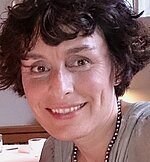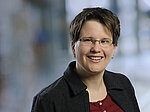Group 4: Professional identity in adult education


Comparative Group 4: Professional identity in adult education
role concepts, role acting, professional identity
Questions regarding the personal professional identity are essential in the context of academic professionalization. In andragogic settings these are framed by different conditions and demands: through the curricular foundation, the institutional requirements, the expectations on the part of participants and through one’s own role understanding. Especially the understanding of learning and teaching plays a central role. The lecturers see themselves – according to their own transcultural and learning experiences and academic socialization – as teachers, learning guides, consultants or role models – corresponding to this is their perspective on their own professional identity. This understanding, paired with different concepts of learning and teaching, influences, among biographic experiences and theoretical discourses, also the professional development of identity of students of adult education.
In the foreground within the comparative group is therefore the question about the process of professional identity development of adult educators in context of the academic education. By referring back to (trans)national concepts of learning and teaching, the different roles of adult educators are thereto illumined.
Comparative research question:
Which aspects are crucial for the professional identity development in academic professionalization of future adult educators and which role concepts can be found?
Context of comparison:
Firstly, core curricula and module manuals serve as comparison of the corresponding studies of adult education on the universities of the participants. On the one hand, one aim is to identify to what extend the pedagogical approach, the professional self-image or an andragogic habitus become subjects of academic qualification. On the other hand, it is of interest, which understanding of roles in the respective countries are taken as a basis: teacher, trainer, coach, facilitator etc. Secondly it is referred to (trans)national educational discourses, which clarify the question of professional identity of adult educators (also by taking recourse on the academic education).
Categories of comparison:
- Which concepts of learning and teaching are imparted in the context of university education? Before the role of adult educators is focused on, academic concepts, central learning and teaching concepts of the respective countries are presented as an introduction and in order to refer to the theoretical orientation of academic concepts. This means: For the concepts of Teaching and Learning: Which concepts of teaching and learning of adults are discussed in your studies in adult education? For the Professional Identity: In which way do you studies contribute to the development a professional identity in adult education? (e.g. which modules are contributing to it in which way?)
- To what extend is the question about a professional identity subject of your study? Can essential points or information be found in curricula or module manuals? Is this topic covered by courses of your study? If so, where and in which practical and theoretical context?
- Which terms exist for adult educators inside and outside of university? Which kind of images and requirements are connected to these terms? Following to (trans)national concepts of learning and teaching in academic adult education, central designations for adult educators are extracted. This goes from teacher, learning guide, coach, imparters of knowledge to lecturer or mentor.
- How is the role of adult educators in these concepts? Which role should adult educators fulfil in these concepts? What can you find concerning this in central academic concepts of adult education?
References:
Merrill, Barbara (ed.) (2009): Learning to Change? The Role of Identity and Learning Careers in Adult Education. Frank-furt/M: Peter Lang.
Bierema, Laura L. (2011): Reflections on the Profession and Professionalization of Adult Education. In: PAACE Journal of Lifelong Learning, Vol. 20, pp. 21-36.; Bierema, Laura L. (2010): Professional Identity. In: Carol E. Kasworm, Amy D. Rose, Jovita M. Ross-Gordon (ed.): Handbook of Adult and Continuing Education. AGE, pp. 135-146.
Prof. Ingeborg Schüßler, University of Education in Ludwigsburg, Germany
Ingeborg Schüßler is a Professor for Adult Education and Educational Management at the Ludwigsburg University of Education. She acted as a senior researcher at the German Institute for Adult Education (DIE) and is an author and mentor at the Distance and Independent Studies Center of the Technical University of Kaiserslautern. She works in the field of professionalisation and quality development as well as learning culture development in adult and continuing education.
Dr. Kira Nierobisch, University of Education in Ludwigsburg, Germany
Kira Nierobisch receives her PhD in 2014: Since 2012 she works as a research associate at the Institute of Adult Education and Vocational Education; Her main research and work activities focused on qualitative methods of empirical social research, educational counseling and extracurricular youth education; before moving at the University of Education/Ludwigsburg, she has been a research associate at the University of Mainz and works in different areas of adult education (e.g. youth volunteering, non-formal education and lifelong guidance).


